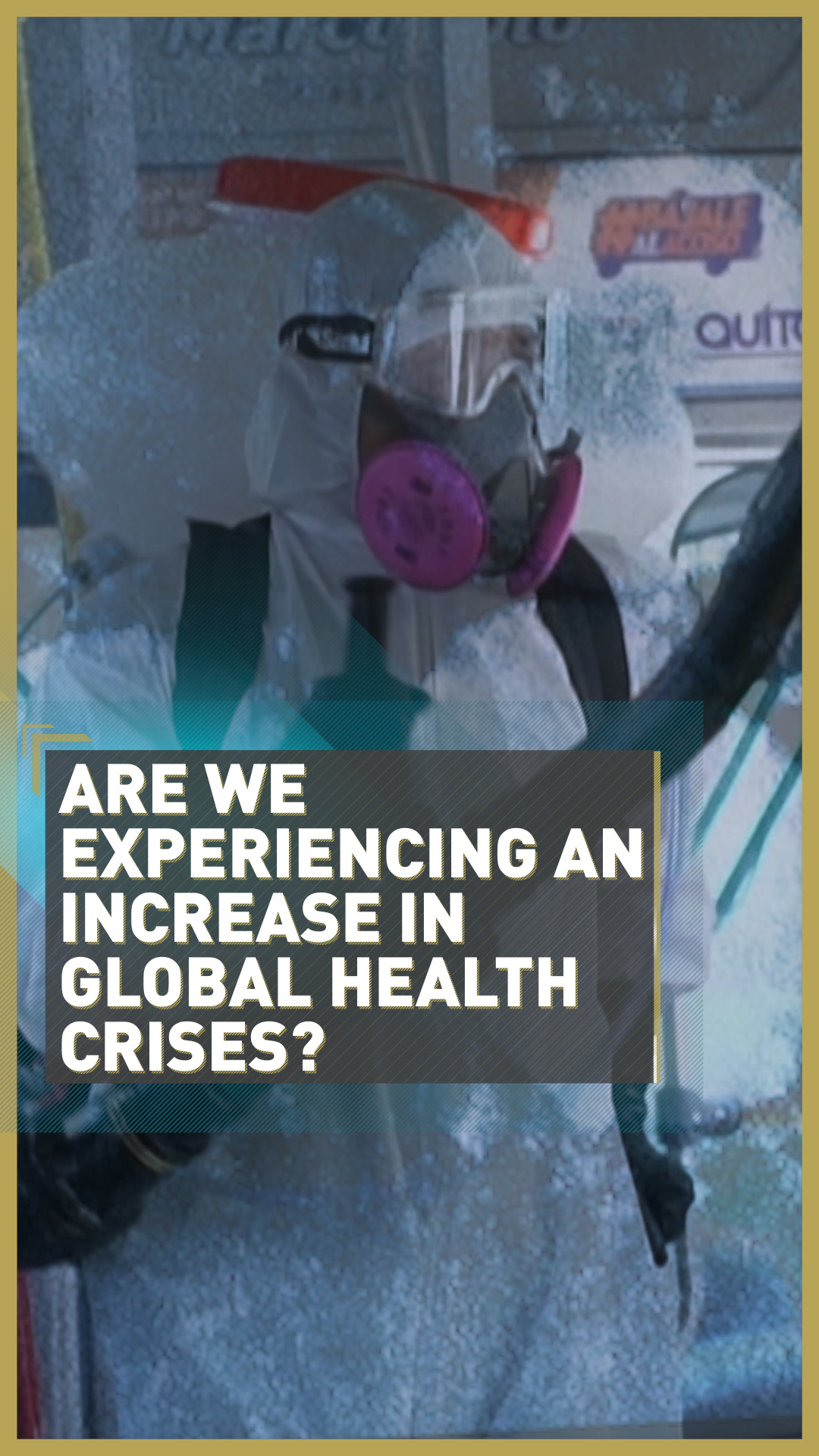05:14

From Swine Flu to COVID-19, the 21st century has witnessed six global health emergencies declared by the World Health Organisation (WHO). Many scientists now believe that not only are these crises increasing in frequency, but fighting them will become the "new normal."
Amid the West African Ebola outbreak of 2014-16, in which 11,323 people died, the executive director of the WHO's health emergencies program, Michael Ryan, told the BBC: "We are entering a very new phase of high-impact epidemics and this isn't just Ebola."
Ryan, who is now at the forefront of the WHO's COVID-19 response, added then that the world is "seeing a very worrying convergence of risks."
"The COVID-19 coronavirus is simply the new normal," says Steven Hoffman, professor of global health at Toronto's York University. For Hoffman, whose work focuses on epidemiology, the reason lies in globalization.
"We live in an ever-increasingly globalizing world, where people and products are traveling further, faster with greater intensity than we've ever seen before."
The processes related to climate change, namely deforestation – which brings humans into closer proximity to animals – is a contributing risk factor. The origin of COVID-19 has yet to be determined, although many scientists have posited that it originated from an animal, like swine flu and Sars before it.
Mark Honigsbaum, author of 'The Pandemic Century…,' which examines the history of pandemics from the Spanish Flu and the Psittacosis outbreak of 1929–1930, dubbed "Parrot Fever" onward, warns against invasive behavior.
"The increase in contact between humans and animals makes it more likely that a virus that was previously just circulating in an animal population might spill over into a human population."
Insects that spread disease, like mosquitos, are also being exposed to a wider human population, explains Honigsbaum.
"A lot of viruses like yellow fever, like Dengue, like malaria, are spread by mosquitoes. And with climate change, of course, you increase the range of habitats where these mosquitoes can breed.
"So, you might get mosquitoes transmitting these diseases at lower elevations and increasingly in urban areas."
A further risk factor, also related to climate change, is the growth of mega cities – urban areas with a population of more than 10 million people. Driven by population increases and rural workers seeking job opportunities, the proportion of the world living in cities has boomed in the 21st century. According to UN forecasts, three out of five people will be living in cities in 2030.
Scientists have long warned of the risks of urbanization. "We're increasingly living in close quarters, taking advantage of the opportunities that poses as well, that's new risks," states Hoffman.
Wuhan, in Hubei province, China, where COVID-19 is thought to have started, has a population of around 19 million.
Honigsbaum describes megacities as a "petri dish," where diseases and viruses can spread easily. "What happens in cities is you bring large numbers of people together and that increases the chances of a virus transmitting and spreading more widely in a population. But it also means that there'll be large numbers of people who don't have any immunity."
He adds: "So, especially younger age groups, younger cohorts. And that means you increase the chance you'll get these cycles of epidemics recurring."
European right-wing politicians such as Marine le Pen and Matteo Salvini, both of whom support anti-migrant policies, have suggested closing borders in order to fight the outbreak. The policy has already been implemented across Asia, with Russia ordering its 2,700-mile Chinese border to be shut in the first weeks of the COVID-19 outbreak.
Honigsbaum warns against such measures. "All that quarantines and border closing can do is slow the spread of the virus. It's not going to stop it." He adds: "The only thing that closing borders or grounding flights will do is worsen the economic situation for all of us."
A benefit of globalization is that the near instantaneous spread and sharing of information via the internet allows for scientists and health organizations to cooperate at levels never before seen.
"One of the big lessons from the recent run of epidemics is that we need and we are getting much better at cooperating internationally. So, scientists are now sharing data on this outbreak much more quickly," Honigsbaum says.
Hoffman agrees, calling for a "planetary health perspective," that would see the "integrating across disciplines, across sectors, trying to find solutions that are not necessarily what we've seen in the past, but ones that are a better fit for our increasingly globalized world that we all find ourselves living in."
While we might be more prone to global health crises, we are also better placed than ever to fight them. Within globalization lies both the cause of the problem and its potential solution.
Cover photo: A Chinese woman uses a plastic bag to cover her head while waiting for her flight at the departure area of Manila's International Airport, Philippines on Wednesday, March 18, 2020. /AP Photo/Aaron Favila